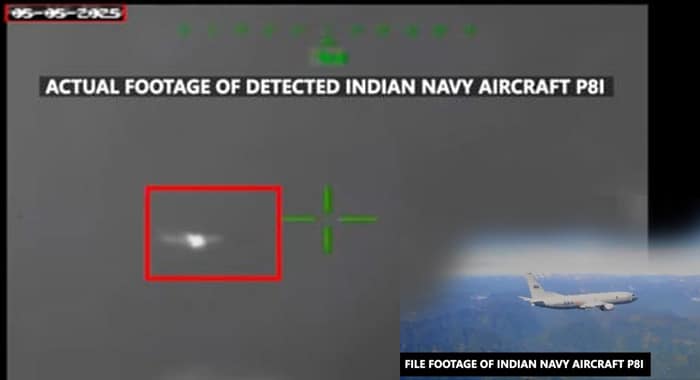In a significant development reflecting heightened regional tensions, the Pakistan Navy successfully detected and maintained continuous surveillance over an Indian P-8I spy aircraft during the night between May 4 and 5. The aircraft, used by the Indian Navy for maritime espionage and surveillance, was intercepted amid growing provocations from New Delhi.
According to security sources, the Pakistan Navy’s swift and precise tracking of the Indian spy plane underscores its round-the-clock vigilance and unwavering preparedness to counter any form of Indian aggression. The deployment of the U.S.-made P-8I aircraft in Pakistan’s vicinity is being viewed as a deliberate provocation, as India continues to pursue destabilising tactics in the region.
Meanwhile, Turkish and Omani ambassadors called on Chief of the Naval Staff Admiral Naveed Ashraf at the Naval Headquarters. According to a statement issued by Inter-Services Public Relations (ISPR), discussions focused on mutual defence cooperation, regional maritime security, and the evolving strategic environment. Admiral Ashraf highlighted Pakistan Navy’s peace-building initiatives through Regional Maritime Security Patrols, which were praised by both envoys for their role in ensuring stability in the Arabian Sea and beyond.
The meetings reaffirmed Pakistan’s resolve to deepen strategic ties with friendly nations and bolster cooperative frameworks in the face of regional threats.
Tensions between Pakistan and India have intensified following the April 22 Pahalgam attack. Instead of seeking facts, the Indian government launched a barrage of baseless accusations and aggressive actions against Pakistan. In a series of knee-jerk and hostile moves, New Delhi unilaterally suspended the Indus Waters Treaty, ordered Pakistani diplomatic staff to leave India by April 30, 2025, and revoked visas of Pakistani citizens.
In a calibrated and firm response, Pakistan’s National Security Committee adopted an assertive diplomatic posture, capping the number of Indian diplomats in Islamabad to 30 and making it clear that Pakistan’s water rights are non-negotiable. The committee warned that any attempt to weaponise water by India would be considered an act of war.
Pakistan continues to expose India’s belligerence on the international stage and remains committed to safeguarding its national interests through measured diplomacy and resolute defence.





